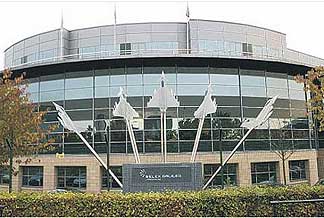
This is only part of the news as Mark Hartree, capability manager for Selex Galileo, said the funding could boost the company's chances of winning a massive contract to use the gyro in the European Space Agency's (ESA) multi-billion-euro Galileo satellite navigation system, Europe's answer to the American Global Positioning System (GPS). It is said that should the endeavor proceed it would be the biggest deal for the space industry of Scotland.
The Space Innovation and Growth Team's (Space IGT) 20-year forecast for the UK is to grow their expanding global space market from six per cent to 10 per cent. Sure to help with this cause the company has worked with two other UK companies to develop the "disruptive" technology, and won the funding from the UK's Technology Strategy Board, which invests in research to stimulate technological innovation.

